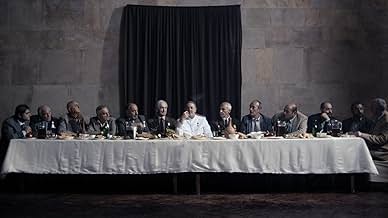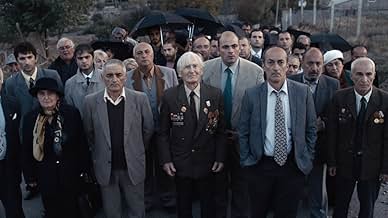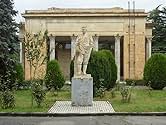On the sixty-third anniversary of Joseph Stalin's death, a commemorative ceremony is held in his birthplace, Gori. A small crowd of people, mostly old, gathers around his statue. A public speaker informs us that Stalin always wanted to become a priest. Instead, he became General Secretary of the most vehemently anti-religious regime on Earth. But the people of Gori love Stalin all the same. Almost as much as they love Jesus.
It is this conflicting idolisation that lies at the heart of "Fatherland". Director George Sikharulidze uses a combination of Christian and communist iconography to explore the curious convergence of loyalties in the people's hearts. Stalin becomes a messianic figure when he rises from the dead and joins the people of Gori. A banquet held in his honour clearly mirrors The Last Supper, Stalin seated in the centre. Then moments later, a reproduction of the original fresco is seen in the background, placed in counterpoint with a communist party meeting.
The fascinating thing about "Fatherland" is that much of it is real. Stalin is still revered in parts of the former Soviet Union, even (especially?) in religious circles. In an interview with Criterion, Sikharulidze has mentioned local attempts to have the tyrant and mass-murderer canonised as a saint, so that people can pray directly to him. "Fatherland" could simply have made fun of such affairs, but it shoots for more than satire. By blending the disparate elements of stalinism and Christianity the way the people of Gori do, it invites us to take part in their state of mind, only to crush that with a damning final shot.
Thanks to the innovative programming department at the Criterion Channel, this too-little-known short is now available to a worldwide audience.




















